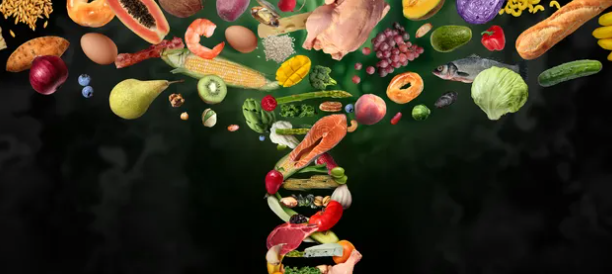What Are Enzymes and Why Are They Vital for Your Health?
Imagine trying to bake a cake without turning on the oven. You might have all the right ingredients—flour, eggs, sugar—but without heat, nothing happens. That’s what your body would be like without enzymes: full of potential, but incapable of action. Enzymes are the microscopic powerhouses that convert raw materials into energy and drive every essential biological process. They’re the invisible workers behind every breath, bite, and heartbeat.
“Without enzymes, no living organism could survive,” says Dave Farina, science educator and creator of Professor Dave Explains. “We should be thankful for them—without enzymes, we simply wouldn’t exist.”

What Exactly Are Enzymes?
Enzymes are specialized proteins that accelerate chemical reactions inside living organisms. According to Dr. Whitney Holden, a biology professor at the Arkansas School for Mathematics, Sciences and the Arts, most chemical reactions in the body either wouldn’t happen or would occur too slowly to sustain life without enzymes.
One of the remarkable qualities of enzymes is that they aren’t used up in the reactions they catalyze, meaning they can be reused repeatedly. They are also highly specific—each enzyme typically interacts with a particular molecule or performs a unique function, much like a key that fits only one lock.
There are thousands of enzymes in the human body, grouped into six major categories based on the type of reaction they facilitate:
- Oxidoreductases
- Transferases
- Hydrolases
- Lyases
- Isomerases
- Ligases
Understanding these categories, Farina explains, is fundamental to grasping how enzymes operate.

The Many Roles of Enzymes in the Body
Enzymes are essential to nearly every process in your body, including:
1. Digestion
Digestive enzymes like amylase, protease, and lipase break down carbohydrates, proteins, and fats into nutrients the body can absorb. “Without these enzymes, we couldn’t extract energy or vitamins from our food,” says Dr. Benjamin Bikman, a cell biologist at Brigham Young University.
2. Metabolism
Enzymes play a crucial role in metabolism by regulating pathways that generate energy. For example, hexokinase helps convert glucose into usable energy.
3. DNA Replication and Repair
Enzymes such as DNA polymerase and ligase ensure that DNA is accurately copied and repaired during cell division. “These enzymes are responsible for copying our genetic code and transcribing genes,” Farina explains.
4. Detoxification
The liver relies on enzymes to break down and neutralize toxins, including drugs and alcohol, so they can be safely eliminated from the body.
5. Immune Support
Enzymes help the immune system by destroying harmful pathogens and controlling inflammation, according to Holden.
6. Hormonal Balance and Brain Function
Some enzymes regulate hormones essential for reproductive health, while others support cognitive processes and brain health.
What Happens When You’re Low on Enzymes?
Given their critical roles, it’s not surprising that a deficiency in enzymes can cause various health issues. Digestive problems are often the first sign, manifesting as bloating, gas, or poor nutrient absorption due to incomplete food breakdown.
But the effects can go beyond gut discomfort. Insufficient enzyme activity may lead to:
- Chronic inflammation
- Autoimmune disorders
- Hormonal imbalances
- Weak immune response
- Cognitive decline and fatigue
In more serious cases, inherited enzyme deficiencies like Tay-Sachs disease or phenylketonuria can disrupt metabolism so severely that they become life-threatening without treatment.

Causes of Enzyme Deficiency
There are several possible causes of low enzyme levels:
- Genetics
- Aging (enzyme production naturally declines over time)
- Poor diet, especially diets low in nutrient-dense foods and high in processed items
- Chronic stress and sedentary lifestyle
Supporting Healthy Enzyme Levels
The good news is that many enzyme-related problems can be improved through lifestyle changes. A key strategy is eating a balanced, protein-rich diet. “Getting adequate protein at every meal helps your body maintain enzyme production,” says Holden. Regular exercise and stress management also support enzyme function.
In summary, enzymes are vital for life. They ensure that your body can digest food, generate energy, repair DNA, detoxify harmful substances, and fight off disease. When you treat your body well—through diet, movement, and rest—your enzymes will return the favor by keeping everything running smoothly.




